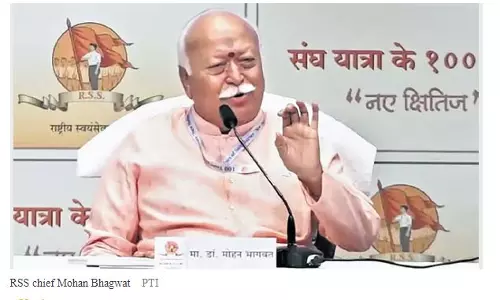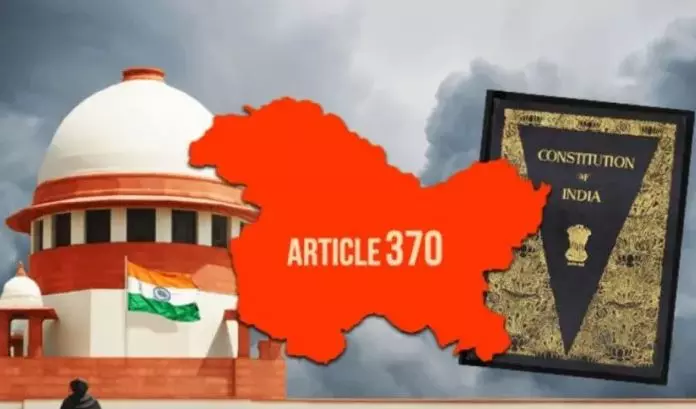
Revocation of Article 370: SC says result achieved cannot be justified the Constitutional change
text_fieldsNew Delhi: The Supreme Court observed that the ends achieved through legal changes could not justify the means used to abrogate Article 370 of the Constitution, which granted special status to the region of Jammu and Kashmir.
The court's remarks came during a hearing of more than 20 petitions challenging the government's decision to revoke the special status and reorganize the state into two Union Territories back in 2019.
The five-judge bench’s, led by Chief Justice DY Chandrachud, response came after the Attorney General, R Venkataramani, cited a statement from former US President Abraham Lincoln to support the argument that constitutional measures can be set aside in exceptional circumstances.
In response, Chief Justice Chandrachud emphasized that a situation where the ends justified means couldn't be postulated, and that means must align with the desired ends.
The Attorney General had argued that the abrogation of Article 370 didn't involve any "constitutional fraud" and that Jammu and Kashmir had lost its sovereignty when it acceded to India in 1947.
However, the court noted that while accession unified the region into the Indian federation, it didn't necessarily compromise its internal sovereignty.
Solicitor General Tushar Mehta clarified that autonomy and internal sovereignty were distinct concepts. He stated that while autonomy was a feature of every unit in a federal structure, it didn't imply internal sovereignty.
Mehta further contended that Article 370 wasn't an irrevocable privilege but rather a provision that could be amended or withdrawn.
The court also probed the change made to Article 370 on August 5, 2019, specifically the replacement of "Constituent Assembly" with "Legislative Assembly" in the text. This alteration marked a pivotal moment in the process of revoking the special status.
The Supreme Court's scrutiny of the means used to abrogate Article 370 underscores the complex legal and constitutional dimensions of the decision made by the Central government.

















